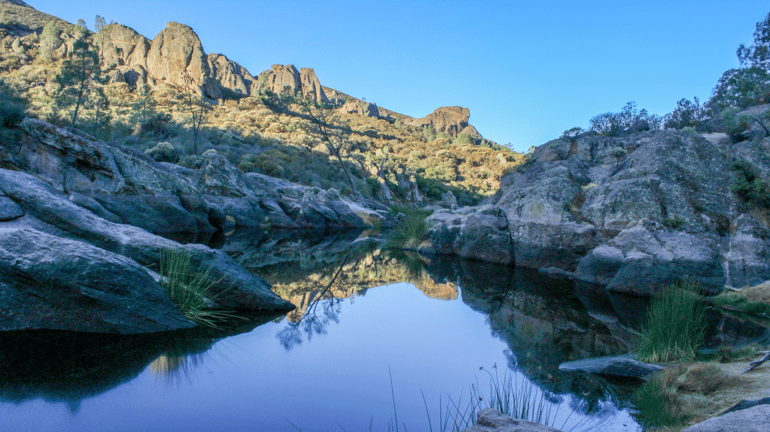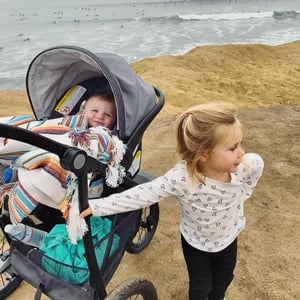Professional Life
Human Life
Extreme Ownership & Radical Accountability
by Alex George
Nov 8, 2021

By Alex George, Founder & CEO of Mountains Wave Marketing
Growing up in the George household, taking ownership and accountability were two things that our parents ingrained (in a good way 😂) into my siblings and me. It provided us with the structure on which we could base our adolescent decision-making. By providing that structure, we learned to be more independent and do what we said we will do, and in rare occurrences find ourselves accountable for the consequences of inaction.
As a child, our responsibilities were menial, things like feeding the dog, taking out the trash, and other household chores, but once I got a car and began my first restaurant job at sixteen, the ability to take responsibility and hold myself accountable for the things I said I would do allowed me to be viewed by the rest of the restaurant as a reliable part of the team. I learned to relish the idea that people from all walks of life view me as a dependable person.
Life continued to evolve into adulthood, and I learned about two schools of thought that took the concepts of ownership and accountability to all-new levels: Extreme Ownership and Radical Accountability. These two pillars have become central tenets of my guide for maintaining great relationships both inside and outside of the workplace. These concepts have helped me be a better team member, collaborator, and leader; and now that our agency is growing, I want to share them with you!
Extreme Ownership
Jocko Willinks is synonymous with the idea of Extreme Ownership. He is a retired Navy Seal Officer who recounts an experience in combat that put the men in his command in harm’s way. When he, as the commanding officer, had to answer to his superiors, it came time to explain what went wrong during the situation. As he reflected, Jocko prepared by detailing every mistake that was made, who made it, every failure, and who was responsible for it. But when it came to telling his commanders what went wrong, rather than explaining there was confusion, failures, and mistakes on all sides, he cast his ego aside and took full ownership as the leader of the mission.
When asked, “Who’s fault is this?” He replied, “The only person is me. I am the commander. I am responsible for everything that happens.” While this is an extreme example of taking ownership for the mistakes made, the act of taking Extreme Ownership is actually demonstrated in his next actions.
After he took responsibility, Jocko presented new procedures to implement in order to prevent another failure like that from happening again. Taking Extreme Ownership by creating these new procedures earned him even more respect. It showed that he wouldn’t shirk responsibility or place blame when things went wrong, but rather look for opportunities to improve. In sum, “Implementing Extreme Ownership requires checking your ego and operating with a high degree of humility. Admitting mistakes, taking ownership, and developing a plan to overcome challenges are integral to any successful team.”
At Mountains Wave Marketing we feel this is an invaluable message that reflects how we operate our business. We work hard for perfection and take ownership of every opportunity that our clients provide. As marketers, we are trusted to act in our client's place, to present a public image to their customers. We take pride in operating as the vehicle creating the face of a company. We must take Extreme Ownership of our role and influence when generating their public image.
Radical Accountability
Radical Accountability, according to Executive Coach Jody Michael, is “ Taking ownership of and responsibility for your thoughts, moods, behaviors and your results in addition to doing what you say you’ll do when you say you’ll do it.” Radical Accountability puts you squarely at the center of your life and the outcomes of your thoughts and actions. It acknowledges the importance of knowing you are accountable for your own life and what you project. Becoming radically accountable makes us face avoidance, blaming, complaining, defensiveness, rationalizing, justifying, rescuing others, procrastinating, and assuming the victim mentality. With Radical accountability, all of these excuses or reasons are disqualified.
We reflect on what we can do personally to be better, do better, and help others improve for the sake of our team or our common goal. As a leader practicing radical accountability, I leave my ego at the door and I keep an open perspective of my ongoing projects and relationships. I recognize my own limits. I don’t overextend myself so that I am able to both meet a deadline with a client and take my kids to the beach as promised.

I do what I say I’m going to do and I help my team meet the same standards. Radical Accountability teaches us to own up to our part in every interaction, understand our role, and broaden our perspectives. It teaches us to clearly and effectively communicate and understand expectations, which is crucial for successful business relationships.
At Mountains Wave, we use Radical Accountability as an opportunity to reflect on how we can improve and serve our clients better. We apply Radical Accountability to our relationships to see if there is room for improvement in our communication and contributions. We ask ourselves if we are reaching the common goal that we have set out to achieve with each individual client and how we can exceed our goals for the benefit of our clients.
Interested in learning more about how our team displays Extreme Ownership and Radical Accountability? Schedule a call with me to chat about it.